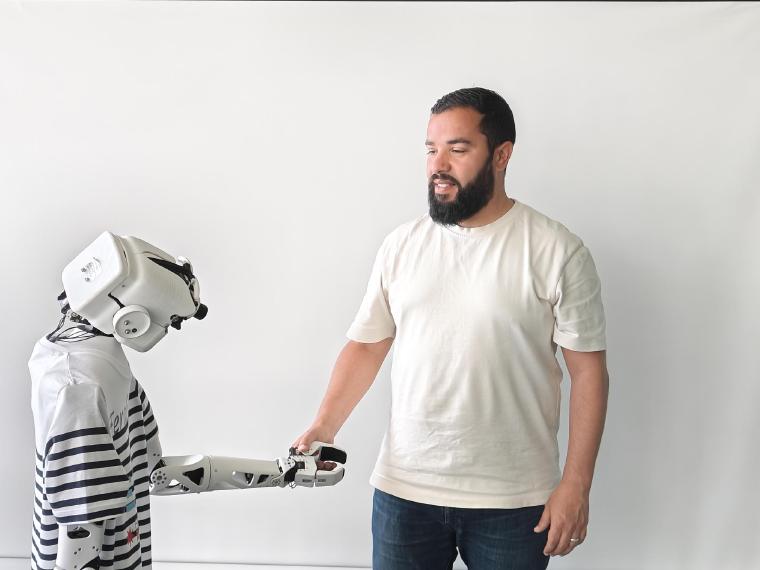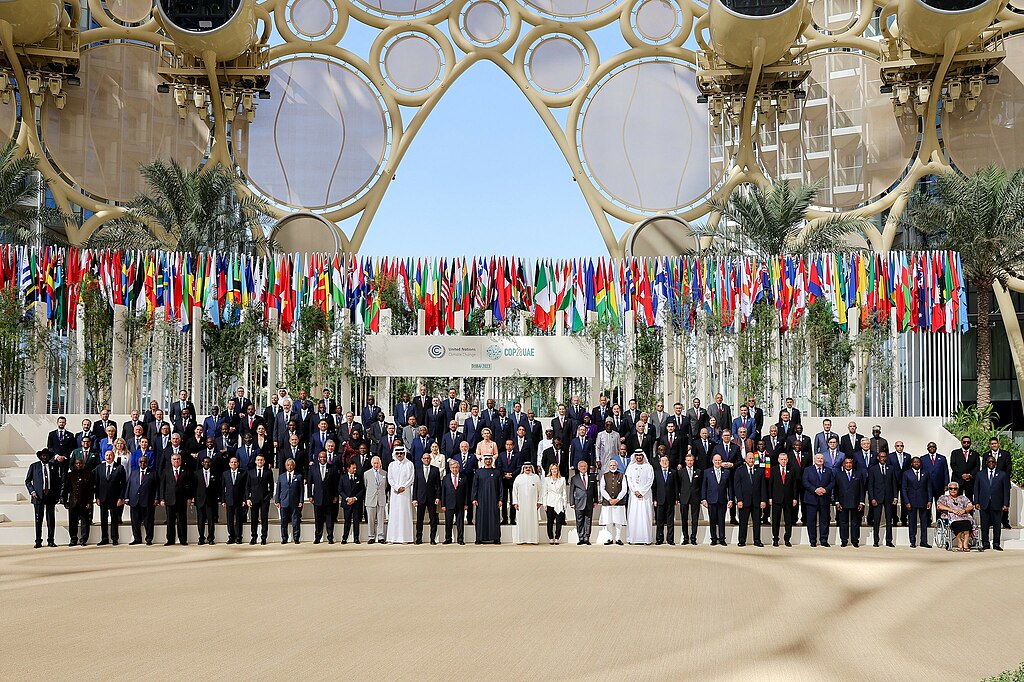In its 2023 call for proposals, CY Initiative funded 14 innovative research projects. Let's take a look at one of the winning Horizon projects led by Luciana Radut-Gaghi, teacher-researcher and university professor at CY Cergy Paris University, on the use of science in public debate, with a focus on its use at the various United Nations Climate Change Conferences (COP).
CY Initiative: Could you introduce yourself and tell us more about your career and your main research themes?
Luciana Radut-Gaghi: Since 2011, I have been a lecturer in Information and Communication Sciences at CY Cergy Paris University. I was promoted to university professor in 2022. I did my dissertation in social sciences at Paris-Descartes University on the discourse of politicians and intellectuals on European integration. Linked to this subject, I made my career in information and communication sciences.
For many years, I continued to conduct research on Europe. I'm continuing this study as part of the LEMEL network (Europe in online media, made up of researchers from eight countries around the world). Over the years, I first became interested in the question of truth or truths that have no single heuristic answer.
Then I turned my attention more specifically to the crises we've been through over the past twenty years, ranging from the economic crises to the migrant crisis, Brexit, Covid and more recently the war in Ukraine. All these crises have made it very obvious that there are truths that seem to circulate in the public space, and not just one truth. Furthermore, the bearers of these truths seemed to have equal status in the public space, as if nothing differentiated them.
Research carried out so far in the 20th century has focused on the privileged status of researchers and science in an economy of speech and public discourse. The way in which scientists have been present and presented, particularly during the Covid crisis - the most recent in this respect, but not the only one, of course - has highlighted a kind of struggle for legitimacy among scientists. Invited to speak on television or in the media, they needed to justify their scientific statements. For me, this is nonsense. You don't argue a truth. You explain it, you demonstrate it, you make it understood, but you don't argue science. That's what my research is all about today.
CY Initiative: You won the CY Initiative's 2023 call for proposals. What does this project involve? And what is its objective?
Luciana Radut-Gaghi: This project emerged five years ago following a brainstorming session with my colleague Axel Boursier from the LT2D laboratory. In discussing our research directions, we identified a central topic to focus on: the voices of scientific reasoning and the uncertainty of knowledge in public debate, particularly on the subject of global warming. After several unsuccessful calls for projects, we finally secured funding from CY Cergy Paris University in 2023.
The UNKNOWNPATH project, winner of the CY Initiative 2023 call for proposals, aims to understand how epistemic communities convey the same scientific information, often in the form of arguments for actions and intentions that have nothing to do with science. Our starting point is a simple observation: the same arguments are used by a wide variety of communities, often with very different, even opposing, intentions. Our aim is to understand how this is articulated in a digital public space, starting with social networks and more specifically the social network Twitter (known today as X).
To this end, we have organized our research project into several stages. We began by identifying these epistemic communities, then turned our attention to the data. Indeed, the second step is to understand how thousands of publications on X can create or influence polymorphisms, paradigms and theories related to climate change. Finally, we need to understand how these science-based arguments are used to convince, on a global scale.
To do this, we decided to focus more specifically on the Conferences of the Parties, more commonly known as COPs. Held each year in a different country, these United Nations conferences have been bringing together the world's governments since 1995 to discuss ways of combating climate change. As part of this project, we're going to focus on analyzing the last three COPs, stopping with COP28, which took place in Dubai in 2023. The aim is to observe the major debates and controversies linked to climate change between each COP. All these controversies are rooted in scientific information and theories, but that doesn't mean they are scientific controversies in the public arena. And more often than not, what we observe is that they turn into social controversies. Science loses its primary status, and these controversies become subject to other interests, notably private and political ones.
CY Initiative: What are the strengths of your project?
Luciana Radut-Gaghi: For this call for proposals, we were able to build a research team with complementary scientific skills. This was true right from the project study phase, when we received very constructive feedback from our colleagues at ESSEC. It was then that we had the opportunity to exchange ideas and enrich the project team. Today, it is made up of professors Fabrice Cavarretta and Linda Benraïs, colleagues from ESSEC Business School with skills in organizational science and negotiation, and with highly original theoretical approaches. Added to this is the knowledge and skills of Professor Dimitris Kotsinos, a specialist in data sciences at CY Cergy Paris University, who brings a Big Data vision to the project. We also have colleagues from LPI who have come with AI tools they are working on, with the ambition of tracing the argument back to its scientific source. And finally we also have colleagues from Babeș-Bolyai University in Romania who work specifically in journalism and bring us their knowledge and a European and international complementarity that is very beneficial to the project. So we've managed to surround ourselves well, which makes this an ambitious project.
CY Initiative: What are the next steps in your project?
Luciana Radut-Gaghi: At this stage, we've started collecting data and we've hired a PhD student in September 2021 in cotutelle with Babeș-Bolyai University.
Today we're rather advanced with the analyses of the COP 26 results and we're having difficulties on COP 27, as we've collected many more tweets than on COP 26, making manual processing and cleaning of the corpus impossible. We have contacted X directly to discuss a different approach. We're also having problems with COP28 because of the switch from Twitter to X. It's no longer possible to collect data the way we used to on Twitter. So we're going to have to come up with a new procedure, but thanks to the team's skills, we should soon be able to find a solution.
At the same time, we're making good progress in identifying potential project partners who might be interested in the results of the study. This helps us to understand who we'll be talking to in the future. The PhD student is currently working on this database of partners and engagement methods that we could tap into. It should be finished before the summer.
For the year 2024-2025, we will be hiring a post-doctoral student in data sciences who will have to apply IT tools to these large corpora. The aim will be to carry out a large-scale study.
CY Initiative: What are your longer-term ambitions?
Luciana Radut-Gaghi: We have great ambitions. We would like to attend a COP, perhaps COP31 in December 2026. Our aim is twofold. First of all, we'd like to present the results of our research and make it clear that these great global warming messes are not necessarily events that have anything to do with science. Politicians talk politics, activists talk activism, but if we analyze the exchanges during COP26, for example, we see that science is almost absent from the debate.The second objective is to be able to take part in the debates. There is a growing desire today to make the voice of scientists heard in forums where they have traditionally had no place. This is what we call scientific diplomacy: we are convinced that scientists and universities have a role to play in diplomatic discussions of all kinds, not just the COPs. We also aim to develop this research over the longer term. The aim is to apply for the European Research Council's Synergy Grant in 2027, and thus qualify for European funding. We'd like to commit to a long-term development dynamic for this research.
Learn more




